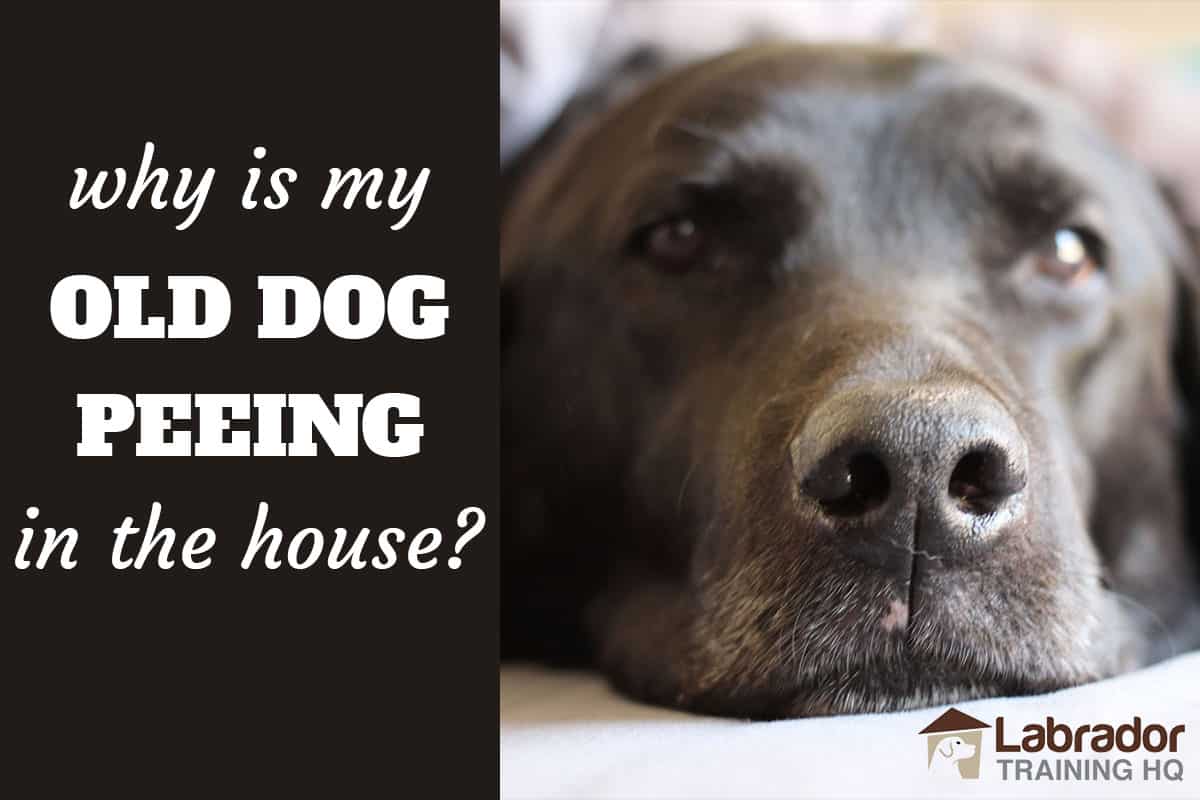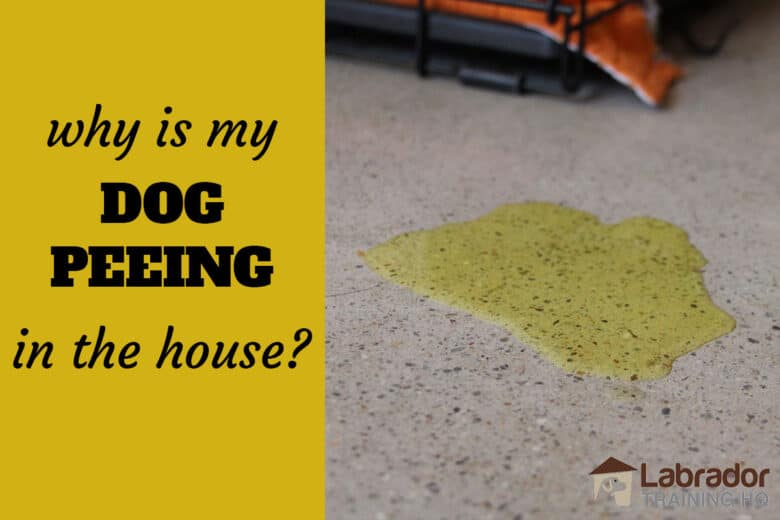Table Of Content

Symptoms of this metabolic disorder include excessive thirst and increased urination. Diabetes insipidus is less common, resulting from an inadequate amount of an antidiuretic hormone. Dogs affected produce large volumes of diluted urine, which prompts them to drink large amounts of water to compensate. These unfortunate conditions can include extreme cold, high winds, rain, or snow. Sometimes, dogs become afraidopens in a new tab of the yard or of peeing out there for some reason, causing them to pee inside instead.
How to Housetrain an Adult or Senior Dog in 6 Steps
Anxiety can cause them to pee in inappropriate places, as can significant changes in their environment. Rather than focusing on punishing their erroneous behavior, concentrate on re-house training them and rewarding them for doing their business where they should. These are just a few more reasons to make sure your dog is not peeing inside the home. Rather than getting mad, train your dog about good bathroom habits again. Reward them when they do their business outside as expected, so they learn that this is the best approach to relieving themselves. You will find both unisex options and gendered options available, which have slightly different designs to deal with the different anatomy of male and female dogs.
“Why Is My Adult Dog Peeing In The House?”
See our privacy statement to find out how we collect and use your data, to contact us with privacy questions or to exercise your personal data rights. Diagnosis requires blood tests and ultrasounds, and treatment involves management with medications. Your veterinarian may adjust the doses or make further recommendations to alleviate the problem.
How Do Dogs Get UTIs?
This behavior will typically resolve as they get used to the new family member, but in the meantime, be sure to clean up any urine spots diligently. It is seen most in young dogs and puppies, but it can happen in dogs of any age. If you are away from your home for an usually long amount of time, your dog may not be able to hold their bladder.
Are there products that can help stop urination in the house?
If your dog is peeing in the house ask yourself if anything has changed for them. These changes may be causing your pet anxiety so try and remove the problem or help them adjust to the change. As they get older, the muscles around your dog’s bladder may weaken meaning they are unable to control when they urinate. Check with your vet to understand if there’s a reason other than age that they cannot control it. Some dogs experience separation anxiety when their owners leave them home alone. Barking, destructive behavior, obsessive pacing and relieving themselves indoors are a few of the symptoms dogs show.

Dogs who start to gulp down more water will need to pee more often and they may not have good bladder control. This usually happens with non-neutered male dogs, and sometimes the behavior stops once the dog is neutered. Neutered males and spayed females may engage in this behavior from time to time, especially if they feel threatened by the arrival of another pet.
Behavioral
Follow the manufacturer’s instructions for best results, and consider using a black light to locate any hidden urine stains that may require additional cleaning. If your dog is having accidents when you’re not home, consider using a crate or confining them to a designated area with access to an indoor potty solution. Providing plenty of opportunities for your dog to go outside before leaving can also help to reduce accidents while you’re away. By providing your mobile number, you agree to receive autodialed, recurring text messages from the HSUS with updates and ways you can help animals.
Quick and Easy In-Home Lab Work for Your Pet
No matter the cause of your dog’s sudden onset of peeing in the house, it’s important to be as patient as possible. If there are no changes in your home or your dog’s daily routine that could have caused their sudden accidents, we always suggest seeing the vet. Some dogs will feel the need to mark everything in the home as theirs, as they may feel threatened by the presence of this new animal. If your dog only pees inside the house when they are unable to go outside for long periods, this could just mean they were unable to hold it any longer.
Dog Behavior
But with some work and patience, you can address the problem and help prevent future incidents. Before we discuss the details of why your potty trained dog is peeing in the house, we should first answer the question of whether or not this is normal. Your veterinarian will most likely want to run a urine test to check for obvious issues, like a UTI or urine crystals. If your dog has other symptoms along with urinary accidents, then a full bloodwork panel, abdominal x-rays, and an abdominal ultrasound may be recommended to help determine the cause of the symptoms.
Dog incontinence, by definition, is the involuntary passing or dribbling of urine. It’s easy to brush off urinating in the house as a normal sign of old age. However, it’s often a result of an underlying medical condition or an emotional or behavioral issue such as dog anxiety, stress or a change in routine. Any dog can get a urinary tract infection, but this is more often seen in senior dogs and female dogs.
Dogs with UTIs may try to urinate very frequently, strain or whine when attempting to urinate, or have blood in their urine. A number of reasons could account for why your dog is peeing inside the house. It could be something as simple as he's drinking too much water and needs to go more often than he's able to go outside. It's a tricky lesson to emphasize to your pet that he must do his business outside — and only outside! House training may be more difficult when you allow your dog to sometimes relieve himself in a designated area indoors, on a puppy training pad, for example. There are a number of reasons why a dog may start peeing indoors unexpectedly.
They do not know vengeance because they preoccupy their minds with food, fun, warmth, and survival… in a pack with a defined pecking order. And, fortunately, they are often simple to treat – though you must first determine the cause to design an effective treatment strategy. This allows them ample opportunity to empty their bladder, while also providing them with some extra exercise.
It could, however, be a behavioral response to a change in surroundings or anxiety. To combat this, do everything you can to address the underlying problem and commit to re-housetraining your dog. A potty trained dog peeing in the house is concerning enough, but it is even more so in our senior pups. If your potty trained dog is suddenly peeing everywhere, this is likely their way of telling you that something is wrong.
These Reusable Pee Pads for Dogs Look Like Area Rugs and They're Machine-Washable - E! Online - E! NEWS
These Reusable Pee Pads for Dogs Look Like Area Rugs and They're Machine-Washable - E! Online.
Posted: Thu, 27 Jul 2023 07:00:00 GMT [source]
When marking, dogs will often emit just enough urine to make a smell rather than emptying their bladder, thus you can usually tell if this is the case if they are only peeing a little. There are several reasons a dog’s behavior may suddenly alter, and determining the cause is usually the first step in resolving the issue. EmergencyVetsUSA.com is for informational purposes only and should not be used for medical advice and should not replace your family veterinarian’s advice.
Though accidents happen, it can be very frustrating if your adult dog is constantly peeing in the house. Inappropriate urination is a common issue in dogs that should be addressed as soon as possible. These urinary issues often occur with no other underlying medical issue present.
If a dog cannot get outside in time to pee, they may resort to peeing inside of the house. Senior dogs can experience anxiety due to many of the same triggers younger dogs experience, as well as anxiety that is brought on by old age. Old dog incontinence is quite common in dogs 10 years and older, and can lead to an increase in accidents around your home. A UTI can cause a dog to dribble urine around the home, as well as pass small amounts of urine frequently. One of the many general declines that our dogs face is the ability to hold their urine, often referred to as old dog incontinence. Take your dog to the vet to identify any health problems that might be affecting your pooch, and organize treatment with your vet.

No comments:
Post a Comment